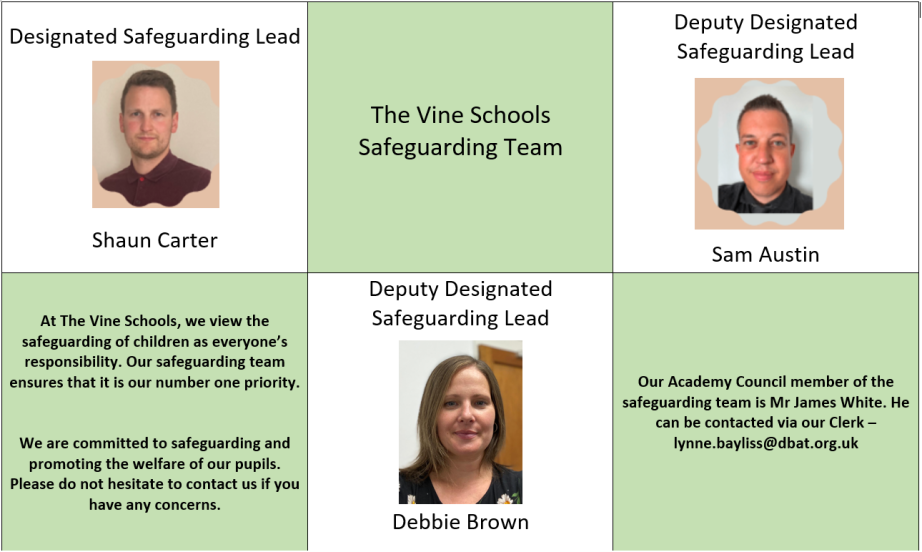E-Safety Information for Parents
New technologies have become integral to the lives of children and young people in today’s society, both within school and in their lives outside school. The internet and other digital information and communications technologies are powerful tools, which open up new opportunities for everyone. These technologies can stimulate discussion, promote creativity and stimulate awareness of context to promote effective learning. All users should have an entitlement to safe internet access at all times.
Many parents and carers do not feel comfortable with their level of understanding of e-safety risks and issues, yet they play an essential role in the education of their children and in the monitoring / regulation of their children’s on-line behaviours. Parents may underestimate how often children and young people come across potentially harmful and inappropriate material on the internet and may be unsure about how to respond.
The following website and organisations offer information and guidance on keeping you and your family safe on line.
South West Grid for Learning
http://www.swgfl.org.uk/products-services/Online-Safety-Services
Additional products, services and resources for online safety.
DfES Anti-Bullying Advice
http://www.dfes.gov.uk/bullying/
UK Safer Internet Centre
http://www.saferinternet.org.uk/
Kid SMART
http://www.kidsmart.org.uk/
SMART rules from Childnet International and Know It All for Parents.
Childnet International
http://www.childnet-int.org/
Provides information for young people. teachers and professionals and parents/carers.
Think U Know
http://www.thinkuknow.co.uk/
Home Office site for pupils and parents explaining Internet dangers and how to stay in control.
DigiZen
http://www.digizen.org/
The Digizen website provides information for educators, parents, carers, and young people
Safer Internet Day
https://saferinternet.org.uk/safer-internet-day/safer-internet-day-2023
Digital Parenting
https://www.vodafone.com/sustainable-business/operating-responsibly/child-rights-and-online-safety
TIPS FOR PARENTS
The tips below are designed to give you a starting point for understanding and working with your child to make sure they stay safe online.
Talk to your child about their internet interests
Be a part of their online life; involve the whole family and show an interest. Find out what sites they visit and what they love about them, if they know you understand they are more likely to come to you if they have any problems.
Educate yourself about the capabilities of the digital devices they might have in the home
Many TVs, games consoles and hand held devices all access the internet in the same way your home PC does. For instance, understand the difference between Wi-Fi internet and mobile internet (i.e. 3G). Even if you have applied parental controls or similar, your child can bypass this by using their mobile phone data connection to access the internet.
Many games consoles (and the games they run) rely on an internet connection. As well as allowing ‘multiplayer’ game play, they often allow real time conversations with people all around the world. Check the suitability of the games they play.
Set boundaries in the online world just as you would in the real world
Think about what they might see, what they share, who they talk to and how long they spend online. It is important to discuss boundaries at a young age to develop the tools and skills children need to enjoy their time online. A good way to set boundaries with your child about what they can and can’t do online is to set an agreement with them. Here are some examples of the areas you might want to discuss:
- Limits on the amount of time your child spends online, or playing computer games.
- Having regular screen breaks – at least five minutes every 45-60 minutes.
- Not sharing any pictures they wouldn’t be happy to share with you.
- Not giving out personal details, such as mobile phone number and address, to people they don’t know and trust.
- Coming to you if they are concerned. Or, if not, knowing where they can go for independent help and support.
Investigate and apply ‘Parental Controls’ to your home Wi-Fi
Your Internet Service Provider (ISP) will all have ways of settings controls on what internet content is allowed into your home. In the same way all internet traffic is filtered in school, your ISP can help you determine what is allowed at home. Some ISPs allow time limits/windows to be set as well.
Find out more about the risks your child might face
There are risks online and it’s important that you help your child tackle them.
- Cyberbullying
- Grooming
- Inappropriate websites
- Viruses, hacking and security
- Maintaining control over images and video – once content is on the internet, it is often out of your/their potential to control its distribution.
